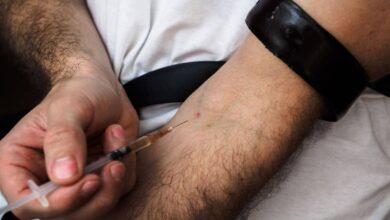How Parents Can Spot and Prevent Drug Abuse

Drug abuse and addiction is a condition characterized by a self-destructive pattern of using a substance that leads to significant problems and distress, which may include tolerance to or withdrawal from the substance.
From prescription drugs and over-the-counter medications to street drugs and alcohol, virtually any drug can be abused. While illicit drugs like heroin and cocaine are abused any time they are used, prescription drugs are abused whenever they are used in a manner other than as intended, or by someone other than to whom they were prescribed. In 2013, approximately 2.8 million people tried an illicit drug for the first time, per the Substance Abuse and Mental Health Administration (SAMHSA), illustrating that more and more people are entering into drug abuse every day.
The majority of teenagers don’t smoke or drink alcohol. They are even less likely to experiment with illicit drugs. For those who do try drugs, many won’t go on using drugs regularly and only a small number will develop serious problems.
Below is some advice for parents who are concerned about their children and drugs.
Positive influences – the best defence
Most drug prevention programs emphasise the important influence that parents and guardians have on children. Good parenting is the best defence against drug use. Try to encourage the following:
• Strong family bonds and mutual respect
• Clear and consistent boundaries
• Shared family life
• Involvement in activities
• A positive school environment
• A sense of belonging
• Promoting rights and responsibilities
• Stressing the consequences of personal behavior.
Signs of drug use
It can be difficult to tell if a young person is using drugs as some common signs such as mood swings and physical changes, are also part of normal adolescent development. Look for opportunities to talk with your child about drug use. Be specific about the things you have seen that are worrying you. Listen to their responses.
Expressing concern about the particular behaviour and not directly accusing your child can make it easier for them to come to you.
Some factors that can indicate drug use include:
• intoxication – slurred speech, small or large pupils, red eyes, sweating, unusually talkative, very happy or sad, feeling or being sick, eating a lot
• unusual items – syringes, ‘bongs’ (bottles with a piece of hose used as a water pipe), bits of foil, pieces of hose, bent spoons
• increased spending, valuables going missing
• marked mood changes
• physical changes – gaining or losing weight, changes in sleeping patterns, skin rashes or sores
• frequent accidents – falling over, bumping into things or having car accidents
• school grades dropping, losing a job, unexpectedly withdrawing from social groups
• secretive phone calls, new friends and breaking away from long-term friends
• your intuition or gut feeling.





